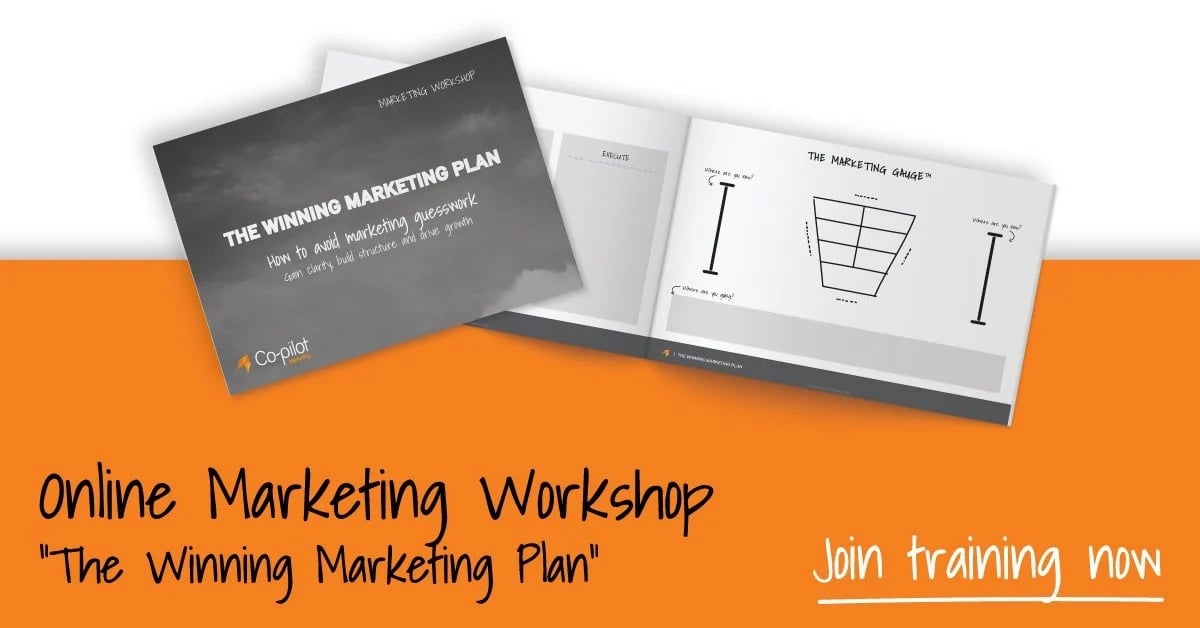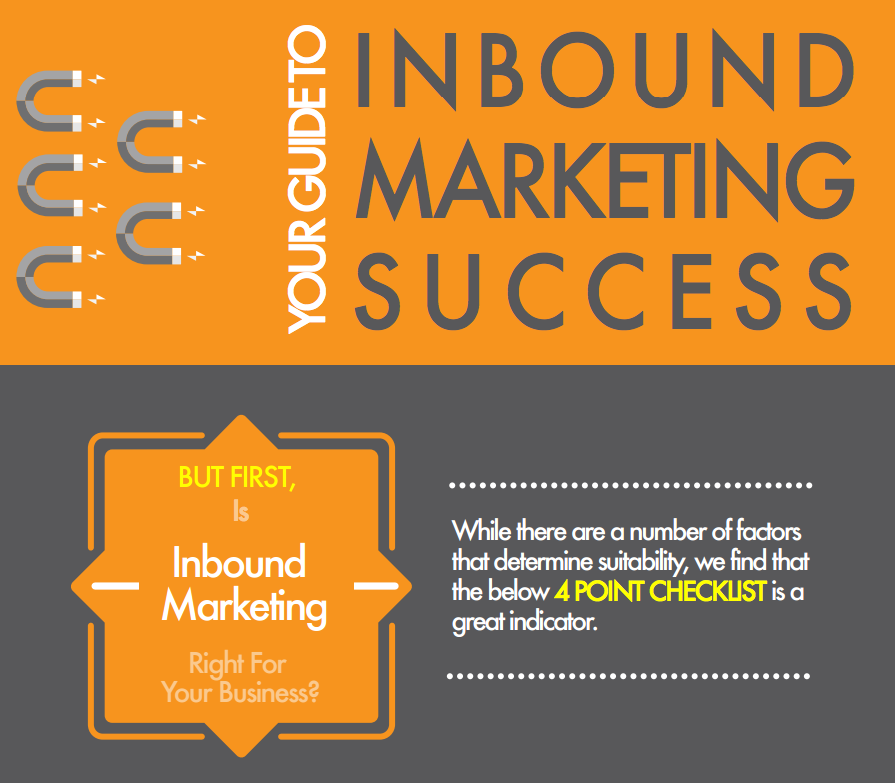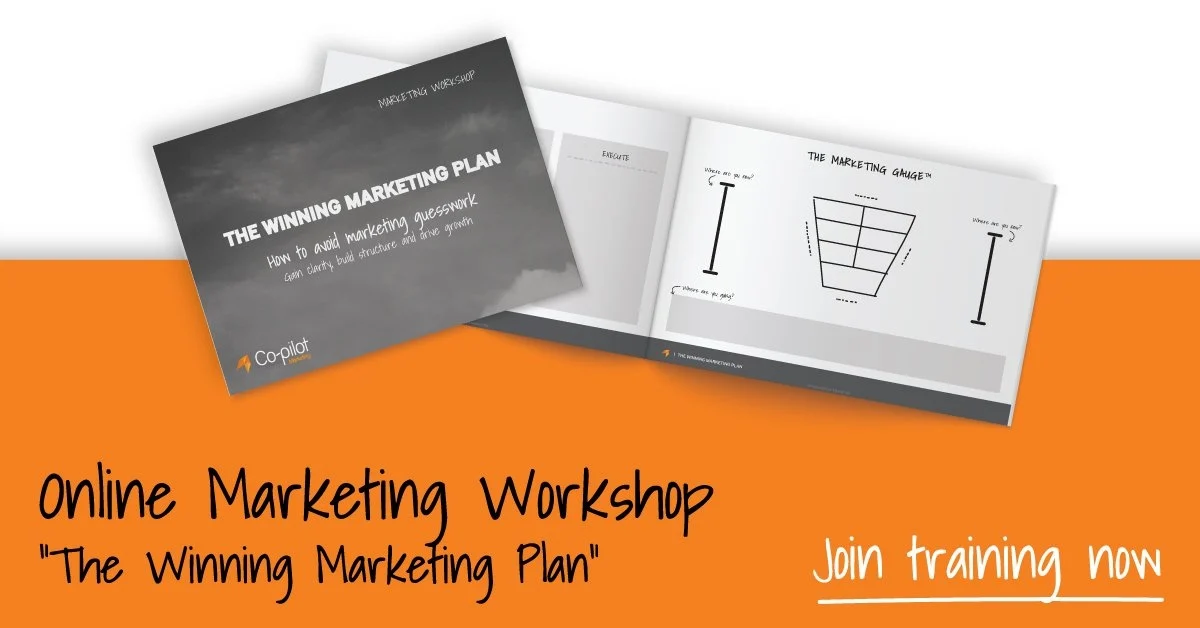Marketing can be a lot of fun. You get to be creative and develop plans and tactics to showcase all the great things your business does.
In my experience, it is not a lack of ideas for marketing tactics that cause challenges for business owners and marketers. Often, they don't get traction with their marketing because they don't have the foundations which allow their chosen tactics to have the desired impact.
Over the last month, in particular, I've seen more businesses than usual looking to start new initiatives. I've been asked for referrals to people who can help them create a podcast, start LinkedIn advertising, re-develop their website, produce a TV ad, and a range of other ideas.
So, I wanted to share a few common questions that I get and some considerations you should have as you identify whether any of these are your best next step.
If you still find that you're unclear on what the right next step is for your business and want some assistance, have a look at our marketing game plan process, as this will help too.
Marketing Tactic Question #1
Should we re-develop our website?
A website redesign is one of the most common activities businesses undertake as they decide to increase their marketing efforts.
I find the websites of most companies are better described as a digital brochure than a lead generation asset. So, while it may seem like a great reason to start here, it is, in fact, the exact reason why you should wait.
For a small to medium-sized business, a website redesign will likely cost in the vicinity of $10-15k, take 1-2 months and require 30 odd hours of your time in meetings, update reviews and testing.
If you're embarking on this journey, you want to make sure you end up with a platform that you can use for years to come without having to re-engineer it.
Many of the businesses I talk with are motivated to get a new website because the current version does not accurately reflect who they are and what they do. However, I frequently see the end result being a newer set of visuals and written statements, which still lack the necessary positioning to generate demand. They are new, and new can give a false sense of improvement.
Your website is the core of your content marketing efforts, so you need to make sure that you have the foundations to develop content that will create demand from your ideal client profile. I rarely see web development companies being able to nail this without you first having:
1. A clearly defined and research-based buyer persona
2. A well-articulated value proposition.
In our Marketing Compass Accelerator, these are the 3 preceding foundations we focus on before we get to content marketing.
When our program members have these elements bedded down before they embark on any new content marketing projects (which includes a website re-development), they are much clearer on what they need.
They can focus on things such as blogging functionality, chatbots, call-to-actions, landing page templates, analytics requirements, contextual slide-in forms, CRM integration and all manner of considerations they were previously unaware of.
Therefore, the answer to the initial question is yes, you probably do need a website re-development. Just not yet, as you are unlikely to know what you really need and have the foundations to choose and guide a web development firm.
Marketing Tactic Question #2
Should we start a podcast?
You've probably picked up the theme that I'm running with now. However, my answer to this question is even more future-oriented.
You may get value from a podcast, but only when you are clear on exactly what you want to achieve. To illustrate this here's a hypothetical discussion between me (James) and a business owner (Shannon).
Shannon: I think we should start a podcast. What do you think?
James: Interesting question. Why do you want to start a podcast?
Shannon: We want to show how deeply we know our stuff. I find that I'm more engaging when I speak than when I write and hate being on camera. If I can discuss a topic I know so much about; then it will be easy to push out heaps of great content. Plus, we've got a room here that would be perfect for it.
James: Ok, got it. I agree that you're magnetic and authoritative when you speak, so I can see this working well down the track, but I'm really curious about how this fits into your current plan. Tell me a bit about some specific objectives you have for the podcast.
Shannon: Well, we want to build our brand. We want to be known as the leaders in ABC, and once we have a top 10 podcast, we can then get featured in XYZ and really get some great exposure.
James: I love that vision! and I've got no doubt that you would create a fantastic podcast. In fact, I think your personality and brand is as good a fit as any for this as a tactic. However, we need to approach this idea with some really clear objectives. Let me start with a few questions to help us unpack this with respect to your overall marketing plan. How many new clients do you need this year?
Shannon: I'm not sure exactly, but we could handle 7 or 58 a month. No, 10 a month. Let's say 10 a month.
James: Excellent, let's work with that for now. So, to get 10 clients a month, how many leads do you need?
Shannon: We tend to close most of the leads we get. I'd say 90% of our leads. So, like 11 leads would do it.
James: That's an epic conversion rate! Just so we are on the same page, I probably should clarify what I mean when I say a lead. Your 90% conversion rate, does that include all contacts in your database, such as someone who downloads a checklist from your website?
Shannon: Yeah, ok. I'm glad you brought that up. I'm not sure how many of those download-ers we get to speak with. What I meant was that when we sit down with someone who wants what we do, we basically close all of them.
James: Ok, got it. I'm glad we clarified that. For this discussion, if you don't mind, can we use a slightly more conservative conversion rate of what I would call an "opportunity". Let's say 70% of "opportunities" become "customers". That way, we need 14 opportunities to get 10 clients. As a result, we could likely need a few hundred leads. Establishing these metrics is an important first step so that we can sense check all the individual tactics we can employ for the budget you have.
Shannon: Ok, we can look at that. But, wouldn't a podcast allow us to reach a large audience and get those sort of leads.
James: It could be a part of your strategy, but we need a whole series of other elements in place to support the podcast for it to be really effective. Let me give you an example. How will we turn a listener into a lead?
....and so the discussion continues.
Like the website example, my point here is that we need to have the foundations in place. First and foremost we need to have clear targets and budgets for our marketing. Unless we know what we're aiming for, then anything and everything can be a good idea.
Setting up a podcast is heaps of fun. You get to develop a brand, buy cool new equipment, see your podcast name and hear your voice on Spotify. But, without other mechanisms to generate leads and nurture them to the point of becoming an opportunity, then you're not going to get full value from that investment of time and effort.
Additionally, you may find that your target audience is much less likely to listen to a podcast than they are to read a blog. Had you found this out before getting started, the idea would never have passed the brainstorming stage.
Marketing Tactic Question #3
Should we start social media advertising?
Running Facebook ads and LinkedIn ads is an excellent way to accelerate your marketing results while your organic efforts start building momentum.
However, you genuinely can't afford to start advertising without having the necessary foundations in place. This can sound counterintuitive on the surface, and often businesses can't see the deficiency of an advertising campaign until they have these foundations in place.
It's really hard to cut through the noise until you can be laser focussed with your advertising and have the tools in place to nurture a lead once you acquire them.
I've got no doubt that you understand your customers deeply. However, most businesses and I mean most, don't tap into the underlying fears, frustrations, wants, aspirations, thoughts, emotions, questions, triggers events, and other elements required to set an effective lead acquisition and lead nurturing effort.
Sure, you can set up a social media ad that talks about your services, and perhaps you offer an eBook or a checklist, but it's likely going to blend into the noise in their newsfeed. And, yes, you will get some leads, but it won't be anywhere near the quality and quantity you're expecting.
Marketing Foundations
All told, there are 9 foundations that I believe you should have in place. If you want to skip straight to what they are and get a rundown on each, go to the 37min 32sec sage of the video at the below link.
This will help you identify what you need and why you need it.
Watch the video here >
-----
I've also dropped below a transcript of the video at the top of this article if you wanted to isolate any elements of what I covered in there...
[Start] So I've been getting a lot of the same sorts of questions over the last few weeks, and effectively, the questions are different, but they're really the same thing.
So because I'm seeing a trend forming here, I thought, let me record a quick video that might be helpful to people out there that are potentially about to start making the same mistakes that I'm seeing these other businesses make.
So the answer to the question and I'll come back and tell you the question later.
But the answer to the question is this, you don't need a podcast, you don't need to start LinkedIn advertising, you don't need a new website, you don't need new software, you don't need any of those things, yet.
And there's nothing wrong with any of those tactics like my clients use them, I use some of them, and they're great once you've got the foundations right.
And the reason I say yet is, a lot of businesses aren't getting any real traction or any real results.
And the things that they're currently doing are only going to magnify and repeat the same sorts of mistakes when they start these new initiatives.
And the danger is this, businesses that decide, and I'll use the podcast as an example because that's become pretty common, that decide, right, we're going to start a podcast.
So you're going to figure out what software you need, then what microphone you need.
And do we need some graphic design? Do we need a logo for this podcast?
And you're going to get really, really busy in doing a heap of the 'doing', and it's going to feel like you're making progress.
You're going to be able to figure out some problems, and you're going to get a sense of achievement out of doing this stuff. But it's important to remember the reason behind why are you going to start a podcast?
You're going to want to create some awareness for your brand. You want to start to position yourself as a thought leader in that space. You want to use it to generate some leads and use it to nurture some existing leads that you have. And they're all great tactics, and that's exactly what you should be doing.
But the danger is if you haven't been able to get traction through your email marketing, or maybe your blog, or maybe the stuff you're already doing on social media, then all you're doing is introducing more channels, but you're not solving the underlying problem.
And often the underlying problem is this, and it basically falls into two key areas.
Businesses aren't ultra clear on who their target audience is, and often people feel like they know who their target audience is, but they can't quantify the needs, their wants, their challenges, their frustrations, the buying triggers; the trigger events that cause them to start looking for businesses like yours to start to solve the problems that they have.
When you can't articulate what those elements are, then often it means that the content you produce as a result is really quite bland. It doesn't speak specifically to the problems that these people have.
And we've got to remember and think of your own experience as a consumer. When you go to look at the products and services in your own business, the market is absolutely saturated. There are so many people that profess to be able to do the exact same stuff that you're doing.
So unless you can cut through that noise and speak to your prospective clients almost as if you're speaking to them one to one, then you're not going to get cut-through.
So by starting a podcast or starting a Facebook group or one running webinars every Thursday morning, that's plenty of doing. But it's not going to solve your problems.
All it's going to do is add more to your plate, give you more things that you need to be managing, and the reality is it's just going to overwhelm you. So, if you feel like you've had a tendency to do any of the things that I've mentioned and you don't confidently feel like you can specifically develop content that's going to really resonate with that target audience; content that's going to demonstrate your capability to really help them solve their problems, then just pause. Be willing to go slow for a moment.
Be willing to invest in getting the right foundations in your business because it will pay dividends in the long term. So if you've been on the fence and you feel like, we know we're not getting the traction that we're looking for, then please don't add more until we get these foundations right.
If you want some resources, you want some help in this area, send me a message. I'll find out some details about what's going to help you most for where you're at.
But please don't go starting any of those things until we've got this right.
Okay. I hope that's been helpful. [End]








Speak Your Mind